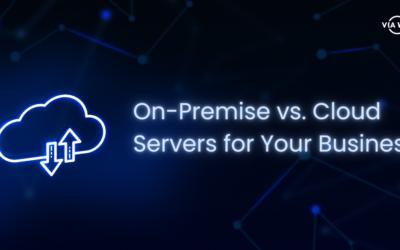As a business owner, you’ve likely heard the buzz about “the cloud,” but what does it really mean for your business?
The cloud is essentially a way to store and access data and applications over the internet, rather than relying solely on your own physical servers. However, not all clouds are created equal. There are three main types of cloud services: public, private, and hybrid. Each has its own strengths, and the best choice depends on your specific business needs.
Public Cloud: Affordable and Scalable
What is it? The public cloud is a service offered by third-party providers like Amazon Web Services (AWS), Microsoft Azure, or Google Cloud. In a public cloud, your data and applications are stored on shared servers alongside those of other businesses. You access these resources over the internet.
Advantages:
- Cost-Effective: Public clouds operate on a pay-as-you-go model, which means you only pay for the resources you use. This can be very budget-friendly, especially for small and medium-sized businesses.
- Scalability: As your business grows, you can easily increase your cloud resources without needing to invest in new hardware. This flexibility allows you to scale up (or down) quickly based on demand.
- Maintenance-Free: The cloud provider handles all updates, security, and maintenance, so you don’t need to worry about managing the infrastructure.
Is it right for your business? The public cloud is ideal if you’re looking for an affordable, flexible solution that can grow with your business. It’s particularly useful for businesses with fluctuating workloads or those just starting out. However, because you’re sharing resources with other users, there may be concerns about data security, which could be a consideration if you handle sensitive information.
Private Cloud: Customised and Secure
What is it? A private cloud is a dedicated cloud environment used exclusively by your business. It can be hosted on-site at your company or by a third-party provider. Unlike the public cloud, the resources are not shared with any other organisations.
Advantages:
- Enhanced Security: Because you’re not sharing resources, a private cloud offers greater control over your data and applications. This makes it easier to meet specific security or compliance requirements, which is crucial for industries like finance or healthcare.
- Customisation: A private cloud can be tailored to fit the specific needs of your business, providing greater flexibility in how resources are configured and managed.
- Performance: With dedicated resources, you can experience more consistent performance, especially for applications that require a lot of computing power.
Is it right for your business? A private cloud is best suited for businesses that need robust security and control over their data. If your company handles sensitive information or has strict regulatory requirements, a private cloud may be the safest choice. However, this option is generally more expensive and requires more IT management, so it might be better for larger organisations with the resources to maintain it.
Hybrid Cloud: The Best of Both Worlds
What is it? A hybrid cloud combines both public and private clouds, allowing you to move data and applications between them as needed. This setup gives you the flexibility to keep sensitive data on a private cloud while utilising the public cloud for less critical tasks.
Advantages:
- Flexibility: You can choose where to place your data and applications based on their sensitivity, allowing for a mix of security and cost-efficiency.
- Optimised Performance: By leveraging both types of cloud, you can run high-performance applications in a private cloud while taking advantage of the public cloud’s scalability.
- Cost Management: You can optimise costs by using the public cloud for general workloads and the private cloud for more critical operations.
Is it right for your business? A hybrid cloud is an excellent choice for businesses that need a balance between security and cost. It allows you to protect sensitive data while still benefiting from the scalability and affordability of the public cloud. If your business has fluctuating demands or operates in a regulated industry, the hybrid cloud provides the flexibility to adapt to changing needs.
Choosing the Right Cloud for Your Business
Selecting the best cloud service for your business depends on several factors, including budget, security needs, and growth plans. Here’s a quick recap:
- Public Cloud: Best for businesses looking for a cost-effective, scalable solution without the need for intensive data security.
- Private Cloud: Ideal for companies with strict security requirements and the resources to manage a dedicated environment.
- Hybrid Cloud: Perfect for businesses that need a flexible solution that balances security, performance, and cost.
By understanding these options, you can make an informed decision that supports your business goals today and in the future.




0 Comments